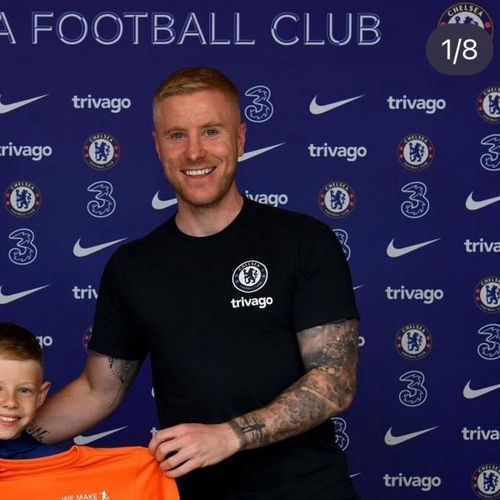
.png)
For parents searching for an activity that’s as fun as it is beneficial, sports are an excellent choice. Participation in sports can be transformational for your child’s mental health, especially in warm, welcoming environments designed for playful, social, and enthusiastic kids—even those not naturally skilled or ambitious. Not only do sports invite laughter and excitement, but they also create meaningful opportunities for emotional growth, increased self-esteem, and lasting friendships. Regular soccer sessions, like those at We Make Footballers, emphasize enjoyment and teamwork so every child feels included and supported. For families with hectic schedules, reliable weekly programs give children a safe place to play and grow, while parents find a supportive community of their own.
Active children are often better sleepers, and there’s real science to back it up. When kids take part in activities like soccer, their bodies naturally use up energy and help regulate sleep cycles. The result? More consistent bedtimes, deeper rest, and a calmer mind after each training session. Research shows that physical exercise helps children fall asleep faster and enjoy more refreshing sleep—key for both learning and emotional balance. It’s a win-win: your child has fun, and you notice the benefits at home, too.
Ever see your child finish a game with a huge smile? That’s their brain on endorphins and dopamine, two natural chemicals released during physical activity that boost mood and help reduce stress or worries. Regular participation in sports can make children more upbeat and less anxious—giving them the tools to handle life’s challenges with resilience and positivity. For both outgoing and shy kids, sports like soccer offer regular chances to feel happy, proud, and supported.
Sports don’t just strengthen muscles—they shape minds, too. Activities like soccer keep kids thinking, problem-solving, and memorizing new skills. There’s plenty of evidence that regular play helps children sharpen memory, build coordination, and develop focus, supporting success both in school and elsewhere. Soccer-based learning is packed with activities that exercise the brain and body, helping children develop into well-rounded individuals.
One of the greatest gifts of sports is belonging. Children quickly find friends on the field, learning to share, communicate, and celebrate together. In nurturing, group settings, even the shyest kids start to feel at home. Programs like We Make Footballers prioritize inclusion and teamwork, so every child—regardless of skill—has a group to belong to. Parents, too, can connect and build friendships while their children play.
Sports give kids a chance to try new roles: leading drills, helping teammates, or working towards a shared goal. These moments teach cooperation, responsibility, and confidence. Even young children thrive when given leadership opportunities that match their age and interests. Through team-based games and age-appropriate challenges, sports encourage personal growth while keeping the focus on fun.
While most children enjoy sports, parents sometimes worry about pressures or risks. Here’s what to notice and how to keep your child’s experiences positive and healthy.
If your child suddenly seems tired, uninterested, or anxious about attending practice, it may be a sign of burnout. Pay attention to any changes in mood or enthusiasm. Providing alternatives like private lessons or non-competitive sessions helps children continue enjoying sports without stress.
Rarely, kids may feel left out or face teasing in team environments. Parents should watch for reluctance to attend sessions or changes in behavior around teammates. Open communication with coaches and choosing programs that prioritize inclusion are key to maintaining a safe space for every child.
Sports like soccer involve some risk, but good programs always put child safety first. Ensure protective gear is available and encouraged, and that coaches are trained in the latest safety protocols. This helps children enjoy confidence on the field while staying safe.
.jpg)
Start with beginner classes aimed at pure enjoyment. Programs like We Make Footballers are designed for kids of all skill levels, putting fun first and letting confidence bloom at any pace.
Choose programs with a clear focus on participation, teamwork, and effort—not just wins. A supportive environment that rewards enthusiasm helps every child feel successful, regardless of their ability.
Let your child move at their own speed. Offer choices and support their interests, increasing involvement as they gain confidence. This flexible approach keeps sports enjoyable and approachable.
Invite relatives or friends to games and practices to create a familiar, welcoming setting. Shared experiences make sports less intimidating and more meaningful, both for your child and you.
Look for trusted options like We Make Footballers—which focus on creating safe, caring, and developmentally appropriate environments for every child. Their weekly training, camps, and birthday sessions are designed to nurture kids’ mental and social well-being.
Consider convenience, safety, communication, and a focus on fun. Read reviews, ask about coaching philosophy, and select programs with a strong family community—the ideal mix for busy parents and happy kids.
Parents consistently report that weekly training at We Make Footballers has helped their children grow in confidence, make friends, and find joy in play. One parent shared, “My child was never interested in soccer before, but now looks forward to every session and has found lifelong friends.” Another noted, “It’s given our child a place where they feel safe, included, and happy.”
With the right guidance and program choice, you can see first-hand how sports can positively impact your child’s mental health—boosting mood, skills, and a lifelong love of movement!